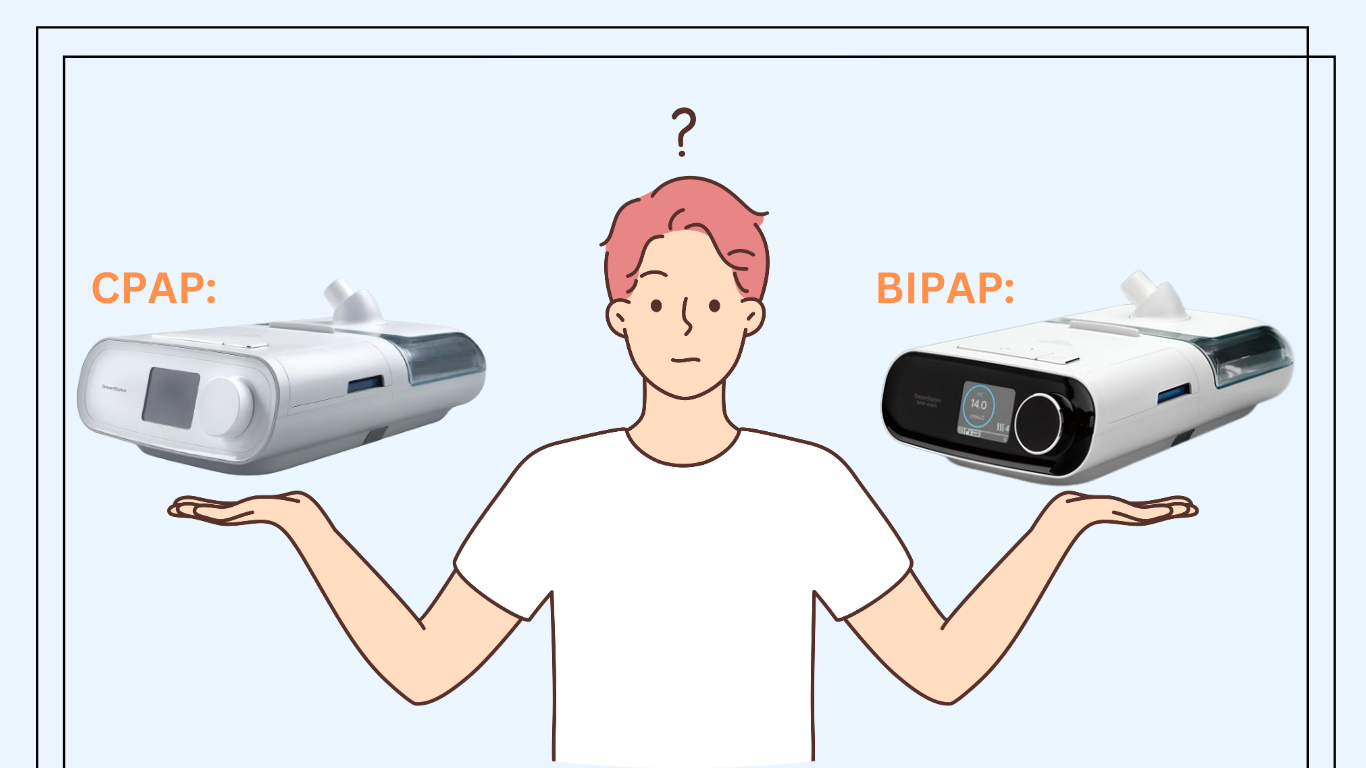Medical Equipment
CPAP vs. BiPAP: Choosing the Perfect Sleep Apnea Therapy for You
Introduction:
Welcome to the ultimate guide on CPAP vs. BiPAP, where we delve deep into the world of sleep apnea therapy to help you make an informed decision. Whether you’re a newly diagnosed sleep apnea warrior or exploring alternative treatment options, this comprehensive comparison will equip you with the knowledge to choose the therapy that suits your needs best.
Understanding Sleep Apnea:
Before we dive into the differences between CPAP and BiPAP, let’s take a moment to understand sleep apnea. This common sleep disorder is characterized by pauses in breathing or shallow breaths during sleep. These interruptions can occur multiple times throughout the night, leading to fragmented sleep and potentially serious health complications if left untreated.
The Role of CPAP:
CPAP, or Continuous Positive Airway Pressure, is often the first-line treatment prescribed for obstructive sleep apnea (OSA). This therapy involves wearing a mask connected to a machine that delivers a continuous stream of air at a prescribed pressure level. The constant airflow acts as a pneumatic splint, keeping the airway open and preventing collapses that lead to apneas and hypopneas.
Benefits of CPAP:
Highly effective in treating obstructive sleep apnea.
Improves sleep quality and reduces daytime sleepiness.
Reduces the risk of cardiovascular complications associated with untreated sleep apnea.
Offers a wide range of mask styles and sizes to accommodate individual preferences.
The Evolution of BiPAP:
BiPAP, or Bi-level Positive Airway Pressure, is a more advanced form of positive airway pressure therapy. Unlike CPAP, which delivers a single continuous pressure throughout the breathing cycle, BiPAP provides two distinct pressure levels: a higher pressure during inhalation (IPAP) and a lower pressure during exhalation (EPAP). This bi-level approach mimics the natural breathing pattern more closely, making it easier for some users to exhale against the pressure.
Indications for BiPAP:
While CPAP remains the gold standard for treating OSA, BiPAP is often recommended for individuals with certain medical conditions or specific breathing patterns, including:
- Central sleep apnea (CSA)
- Complex sleep apnea syndrome (CompSAS)
- COPD (Chronic Obstructive Pulmonary Disease)
- Neuromuscular disorders affecting respiratory muscles
- Obesity hypoventilation syndrome (OHS)
Choosing Between CPAP and BiPAP:
So, how do you decide which therapy is right for you? Here are some factors to consider:
Sleep Study Results: Your sleep study report, including the severity of your sleep apnea and any associated medical conditions, will influence the type of therapy recommended by your healthcare provider.
Breathing Patterns: If you experience difficulty exhaling against the pressure of a CPAP machine or have conditions like COPD or central sleep apnea, BiPAP may offer a more comfortable solution.
Comfort and Compliance: Both CPAP and BiPAP require adjustment periods, but finding a mask style and pressure settings that suit your comfort preferences is essential for long-term compliance and treatment success.
Insurance Coverage: Check with your insurance provider to understand which therapy options are covered under your plan and any out-of-pocket expenses you may incur.
Consulting with Your Healthcare Provider:
Ultimately, the decision between CPAP and BiPAP should be made in consultation with your healthcare provider. They will consider your medical history, sleep study results, lifestyle factors, and treatment goals to tailor a therapy plan that meets your unique needs.
Conclusion:
In the ongoing battle against sleep apnea, CPAP and BiPAP serve as invaluable allies, offering relief from nighttime struggles and improving overall quality of life. Whether you opt for the steady flow of CPAP or the nuanced support of BiPAP, the key to success lies in consistent use and ongoing communication with your healthcare team.
So, embark on your journey to restful nights and revitalized days with confidence, knowing that you’re equipped with the knowledge to choose the perfect sleep apnea therapy for you. Sweet dreams await!


